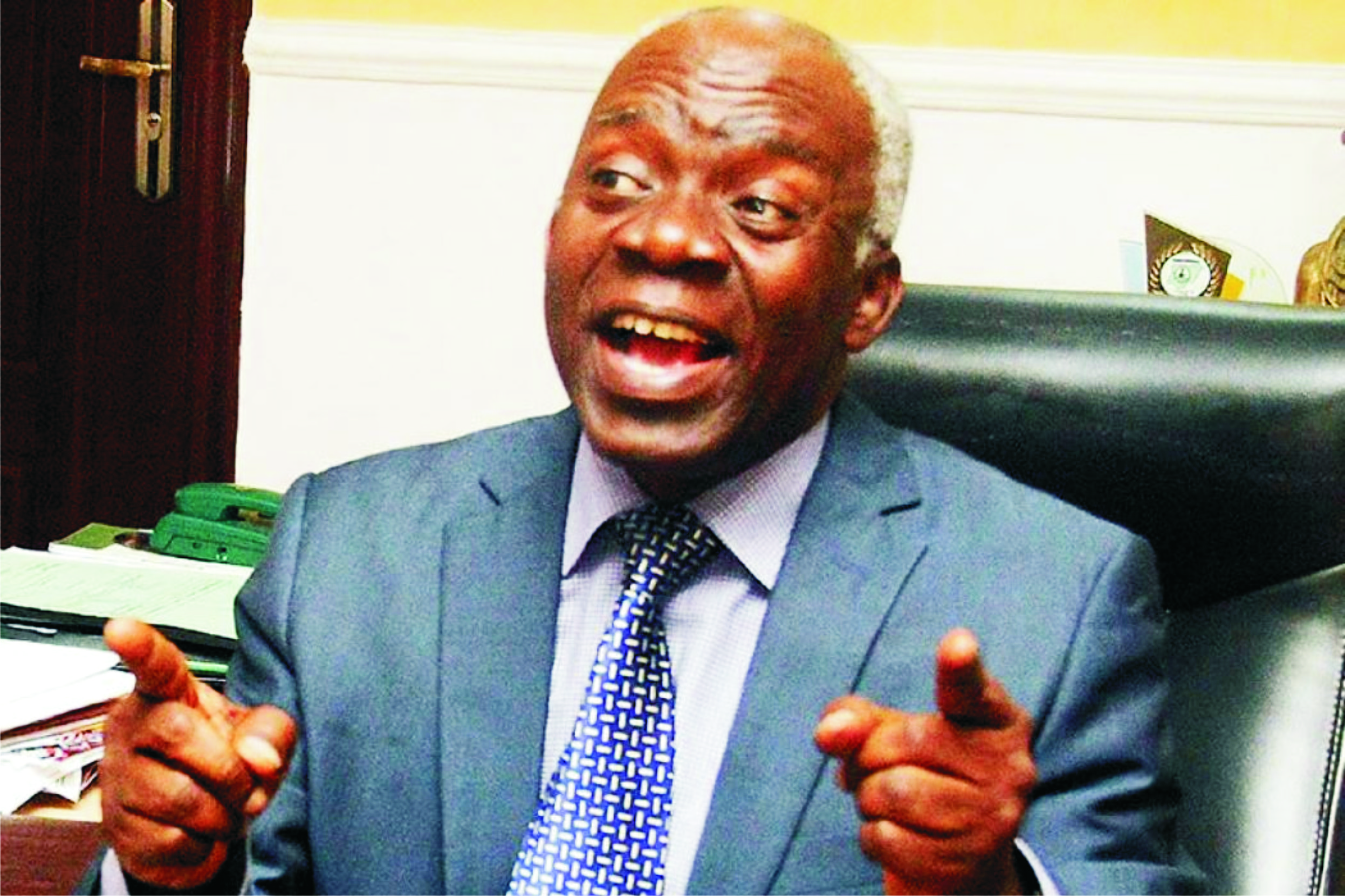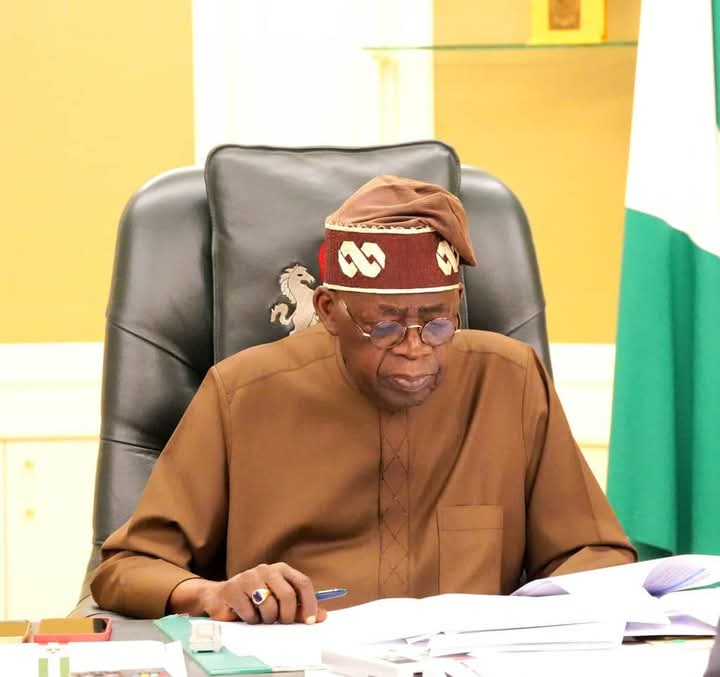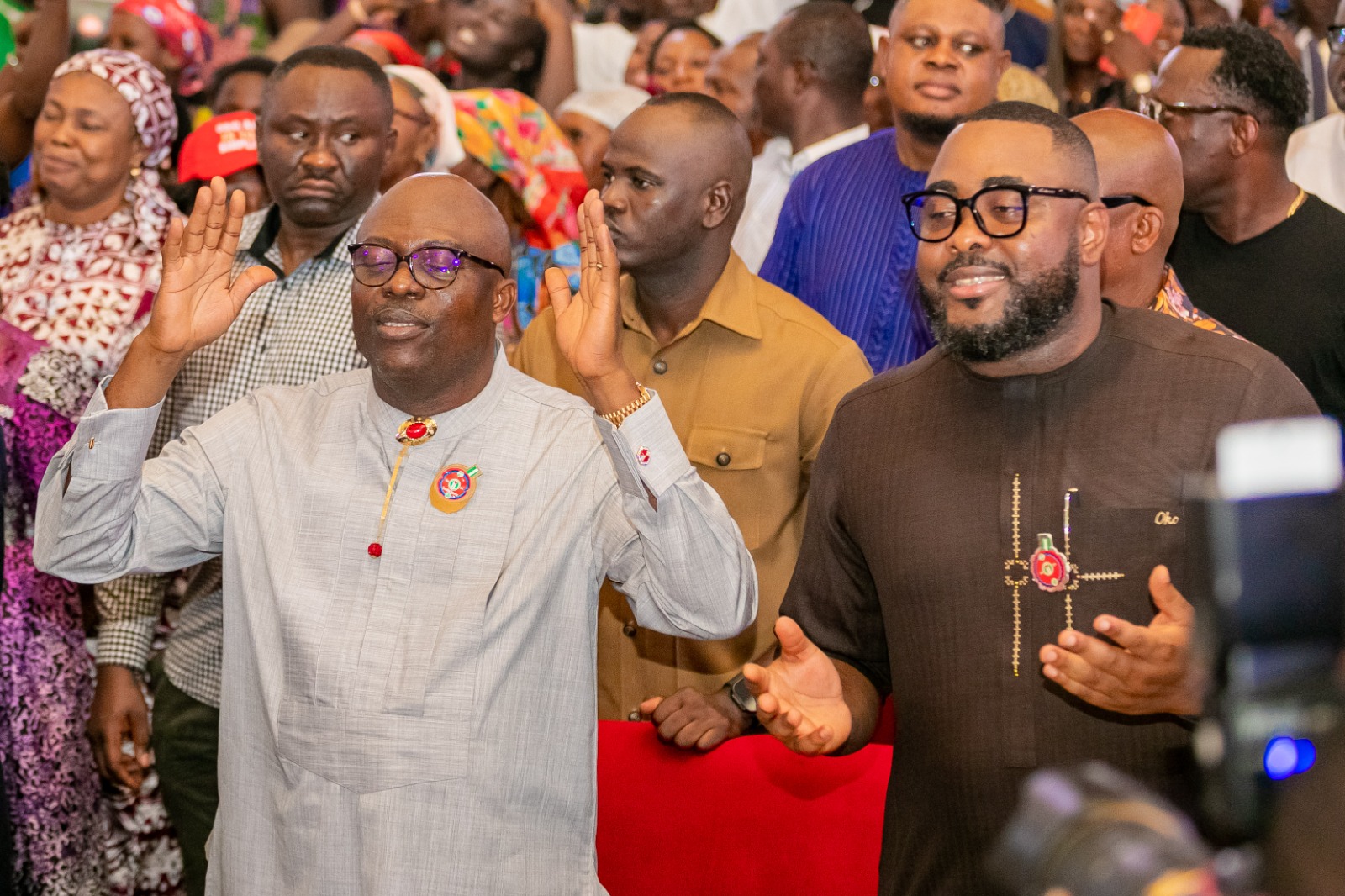Editorial
Another Look At Capital Punishment

There are far too many prisoners in Nigeria’s correctional facilities. Thousands of them are awaiting trial inmates, while others are either serving their jail terms or have received death sentences. The approximate number of death row convicts in custodial facilities around the nation as of July 2022 was 3,145. Of the figure, 3,084 were men and 61 women, according to the Nigerian Correctional Service. This has over time put the process of decongesting the correctional facilities all but impossible.
As governors decline to sign the death warrants for the condemned, the number of the individuals on death row is growing, sparking reservations among human rights advocates and attorneys about what might happen to the prisoners. A few of them have proposed converting the death penalty to life in prison. Others contend that the death sentence ought to be abolished under the constitution if the governors are unwilling to sign the warrants. Femi Falana, SAN, maintains that keeping a prisoner on death row for a considerable amount of time is torture.
Despite repeated calls by the Federal Government for state governors to exercise their constitutional responsibility of signing death warrants of criminals condemned to death by courts of competent jurisdictions, no death row inmate has been executed in the last 10 years. Governors are delaying the wheel of justice and contributing to congestion in correctional centres by refusing to sign the death warrants. States should share in the burden of decongesting custodial facilities in the country.
Crimes that are punishable by death include homicide, kidnapping, and murder. The governors must still sign the warrants after the judges issue these orders for the execution to proceed. Over time, the governors, who are liable for confirming execution orders, have been dodging their role, which has made the already cramped jails even more cluttered. They justify their refusal to append the warrants by citing political correctness and feelings.
One of the most contentious and frequently discussed subjects in the world is the death penalty. Numerous organisations observe that it is cruel and barbarous. Its opponents frequently compare it to murder, pointing out that it has no effect on homicide rates and that the ends do not always substantiate the methods, particularly when people are wrongfully condemned.
Since Nigeria is yet to consider abolishing or suspending the death penalty, the onus is on the governors to take the correct course of action. The number of nations that have done so is expanding. According to the Death Penalty Information Centre, almost 70 per cent of nations worldwide have either outlawed or discontinued the death penalty. Kazakhstan and Papua New Guinea are among the most recent nations to ban it.
By the end of 2021, 108 countries had abolished the death penalty for all crimes under the law; 144 countries had done the same in practice; 28 countries had done so in effect by not carrying out an execution in the previous ten years; and 55 countries still applied the death penalty for common crimes. This information comes from data provided by Amnesty International.
However, proponents of capital punishment often view it as a necessary evil to protect society from individuals who commit the most heinous crimes. Despite the declarations from former Governors Seriake Dickson of Bayelsa State and Simon Lalong of Plateau State that they would not hesitate to approve the death penalty for convicted kidnappers, there is no concrete evidence of them following through on this promise. The only elected governor in recent Nigerian history known to have signed a death warrant was former Governor of Edo State, Adams Oshiomhole, which sparked criticism from various groups.
During his tenure as President of Nigeria, Goodluck Jonathan made a controversial statement urging state governors to sign death warrants for criminals condemned to death. Speaking at a Fathers’ Day Sunday service in 2013, Jonathan reminded the governors that their role as leaders involved both pleasant and unpleasant tasks. Jonathan’s call serves as a reminder of the dual responsibilities that come with leadership and the need for critical reflection on the consequences of such decisions.
Governors play a crucial role in the criminal justice system when it comes to deciding the fate of individuals on death row. They are faced with the weighty decision of either approving the death warrants of those who have exhausted their appeals process, converting their death sentence to life imprisonment, or offering them clemency. Failure to act on any of these options should result in the removal of Section 33, which permits the death penalty, from the constitution.
State governors must set aside personal emotions and make decisions based on the principles of justice, fairness, and compassion. Approving death warrants should only be done after careful consideration of all facts and evidence in a case, ensuring that justice is served. However, if governors find that there are mitigating circumstances or doubts about guilt, they have the option of converting the death sentence to life imprisonment or offer clemency. This allows for the possibility of exoneration or further legal proceedings to rectify any injustices.
Clearly, then, the death penalty in Nigeria should be re-evaluated. The lack of execution and the potential for injustices highlight the need for a more humane and effective form of capital punishment. Life imprisonment could provide a better alternative, ensuring that criminals are still held accountable for their actions while avoiding the risks and controversies associated with the death penalty.
Editorial
Israel-Gaza War: Sustaining The Ceasefire

Editorial
No To Hike In Telecom Tariffs

Nigerians are outraged by the Federal Government’s approval of a 50 per cent increase in telecommunications tariffs, with organised labour threatening to mobilise workers to boycott telecom services. The Nigeria Labour Congress (NLC) and the Trade Union Congress of Nigeria (TUC) have described the upcoming tariff as outrageous, lamenting that it will worsen the already harsh living conditions of workers and the masses.
Similarly, the Coalition of Northern Groups (CNG) rejected the hike, stating that it was ill-timed and did not take into consideration the struggles of Nigerians. The Human Rights Writers Association of Nigeria (HURIWA) also criticised the review, calling it an illegal, unconstitutional, and oppressive policy that undermines the fundamental rights and freedoms of Nigerians. It is a difficult moment for the industry.
Recall that the Nigerian Communications Commission (NCC) approved a 50 per cent increase in tariffs for telecom operators last Monday, instead of the 100 per cent raise that operators had requested. This decision quickly angered the consumers’ association, which criticised the government’s approval as not only punitive but also insensitive.
We wholeheartedly agree with the stance of labour and other groups on this very sensitive matter. We unequivocally condemn the 50 per cent increase in telecom tariffs. Though telecom operators cite higher operational costs and inflation as reasons for the hike, the timing and impact raise serious concerns in the current economic situation. It is a blatant attack on the well-being of the Nigerian worker and a betrayal of the people to corporate interests.
Telecommunication services are essential for daily communication, work, and access to information. However, the average Nigerian worker already spends approximately 10 per cent of their wages on telecom charges. For a worker earning the current minimum wage of N70,000, this means an increase from N7,000 to a staggering N10,500 per month or 15 per cent of their salary, a cost that is unsustainable.
This hike exemplifies the government’s apparent ease in prioritising corporate profits over citizens’ welfare. It is shocking that the government approved a 50 per cent tariff increase for telecom companies within a month, yet took nearly a year to approve the recent minimum wage for workers, despite the rising cost of living and inflation eroding purchasing power.
The questions are: When will the government stand up for the citizens it swore to protect? When will the National Assembly rise to its responsibility and hold the Executive accountable for policies that blatantly undermine the welfare of the majority? When will the common man finally heave a sigh of relief in Nigeria? We urge the government, the NCC, and the National Assembly to review the implementation of this ill-advised increase.
It is difficult to understand the state of mind of the managers of the nation’s economy. Sadly, these managers have alienated themselves from the reality of today. How can a government approve a 50 per cent hike in the tariff of telecom services when even the N70,000 minimum wage has been eroded by inflation, electricity tariff hikes, exorbitant fuel costs, transportation, and other social services?
Even if there is a need for an increase, why does it have to be 50 per cent? If, after dialogue, it is agreed that a raise is necessary, we should all consider a more reasonable increase rather than the 50 per cent hike. Fifty per cent is excessive and will only worsen the already harsh living conditions of workers, placing a heavier burden and more suffering on them and the general population.
The recognition of telecommunication services as essential components of modern society cannot be overstated. In an era characterised by rapid digital transformation, these services are fundamental not only for personal communication but also for facilitating broader socio-economic engagement. The proposed tariffs increase in the telecom sector raises critical concerns regarding equitable access to vital services that support communication, education, healthcare, and commerce.
In a democracy, the people should be the central focus of all government actions and policies. Every decision should aim to improve their quality of life. This plan must be carefully scrutinised with the welfare of citizens in mind. An increase in telecom tariffs will negatively impact many Nigerians, as the internet has become an essential tool for business, communication, and daily activities.
The Tide calls for the immediate suspension of the 50 per cent hike in tariffs. Instead, we recommend a more reasonable adjustment of a maximum of 10 per cent, which balances industry sustainability with the current economic realities in the country. We also demand that the NCC engages in genuine, inclusive consultations with consumer advocacy groups, civil society organisations, and other grassroots stakeholders before implementing any tariff adjustments.
Editorial
Hurray, Siminalayi Fubara Is 50!

Born on January 28, 1975, in Opobo Town, Mr. and Mrs. Joseph and Love Fubara welcomed their second of five children and first son. His father, a former soldier who completed an overseas training tour of duty, instilled in him a strong sense of discipline and dedication. His mother, a civil servant, taught him the importance of hard work and perseverance.
He received his primary education at Opobo Primary School and continued his studies at Comprehensive Secondary School in Opobo. His passion for numbers led him to pursue a degree in Accountancy at the then Rivers State University of Science and Technology, now known as Rivers State University.
Upon completion of his Bachelor’s degree, he pursued further education and obtained a Master of Business Administration (MBA) and a Master of Science (MSc) from the prestigious University of Port Harcourt in 2013 and 2016, respectively. Fubara’s dedication to his studies and his commitment to personal growth have shaped him into the accomplished individual he is today.
Sim, fondly called by his colleagues, started his career in 2003 as a principal accountant at the Rivers State Senior Secondary Schools Board. His dedication led to his promotion to Director of Finance and Accounts at the Government House in 2015. In March 2020, he was appointed Permanent Secretary and then became the Accountant-General of Rivers State on December 23, 2020.
His achievements are numerous, as he is a Knight of the St. Christopher (KSC) Order of the Church of Nigeria Anglican Communion. Additionally, he holds the prestigious traditional chieftaincy title of Amaopusenibo of Opobo Kingdom. The Governor’s commitment to family is evident through his marriage to Valerie Ibiere Fubara, with whom he shares three beautiful children.
Among Siminalayi’s other significant qualifications and accomplishments are his fellowship with the Nigerian Institute of Management and his fellowship with the Association of National Accountants of Nigeria (ANAN). He holds membership in the Chartered Institute of Forensic and Investigative Auditors. His impressive background has gained him the trust and support of the Peoples Democratic Party (PDP), leading to his victory in the party’s governorship primaries for the 2023 general elections.
Fubara embodies a leadership style defined by simplicity and compassion. He exhibits patience, confidence, and empathy in his interactions with those he serves. His humility and faith in God make him trustworthy. Representing the younger generation, Sim leads with the slogan “Consolidating and Continuing the New Rivers Vision,” focusing on developing infrastructure, healthcare, education, security, agriculture, and investment opportunities for Rivers State.
The bravery exhibited by His Excellency in resisting godfatherism has attracted respect from a wide array of Nigerians, Africans, and supporters of democracy around the world. He emphasises serving the interests of the people of Rivers over any godfather. His actions unify diverse groups in the state, promoting a sense of belonging among various ethnicities.
Our affable Governor exemplifies robust moral leadership rooted in his Christian beliefs. As a devoted Knight, he shows compassion and selflessness in his governance. He fosters an environment where all religions can peacefully coexist. Fubara sponsored Muslim pilgrims for the 2024 Hajj and personally wished them well, encouraging them to pray for the state and Nigeria. His religious tolerance has earned him respect among Nigerians who value coexistence.
Moreover, the Governor’s appealing physique and charming smile have garnered admiration from many Nigerians, who view physical beauty as a reflection of inner qualities. His tall stature has solidified his status as a revered figure, commanding respect across the nation. Fubara has shown dedication to women’s issues by initiating several programmes in collaboration with the Women Affairs Ministry and the Office of the First Lady, highlighting his strong commitment to women’s empowerment and gender equality.
Sir Fubara has focused on actively involving young people in his governance by launching entrepreneurship and training schemes, notably the Rivers State Youth Empowerment Scheme. His efforts to support youth have earned him the backing of many young Nigerians. Additionally, he provides scholarships and makes donations to orphanages, demonstrating his commitment to investing in education for the benefit of children in the state.
Known for his strong commitment to national unity, this Governor reaches out to Nigerians from various backgrounds. As a state Governor, he demonstrates great nationalism by supporting citizens from other states, especially in Rivers. He respects the rule of law and democratic values, which has enabled past local government chairmen to complete their terms without issues. His effective management of Rivers State’s resources promotes transparency and accountability.
Despite facing numerous distractions, the Rivers Chief Executive has made remarkable strides in steering the state’s affairs, reflecting his unwavering focus and commitment to delivering results. He has encountered challenges but remains dedicated to his vision for a better state. His peaceful and caring leadership style has made him popular, inspiring new leaders to emulate similar qualities. By being strong yet compassionate, he has redefined the concept of leadership. Fubara’s selfless nature prioritises the state’s needs above his own. This has earned him widespread support.
As he commemorates his Golden Jubilee birthday today, even the most ardent critics, adversaries, and accusers cannot overlook that he embodies a worthy precursor in every sense.
Happy Birthday, His Excellency!
-

 News20 hours ago
News20 hours agoS’South Deputy Govs Pay Condolence Visit To A’Ibom Colleague
-

 Niger Delta17 hours ago
Niger Delta17 hours agoHYPREP Presents Scholarship Grants To 300 Ogoni Postgraduate Students
-
Niger Delta18 hours ago
Environmentalist Makes Case For Oceans Preservation
-
Sports17 hours ago
Aruna, renew rivalry at Singapore Smash 2025
-
Business18 hours ago
Expert Tasks Government On Civil Maritime Security Unit
-
Politics20 hours ago
Edo Assembly Drags LG Chairmen To Court, Seeks LG Law Interpretation
-
Nation17 hours ago
Ahaoda West’s Impactful Projects Excite RIMA Boss
-
Niger Delta18 hours ago
A’Ibom CP Cautions Youth Against Violence In Oil Producing Communities

